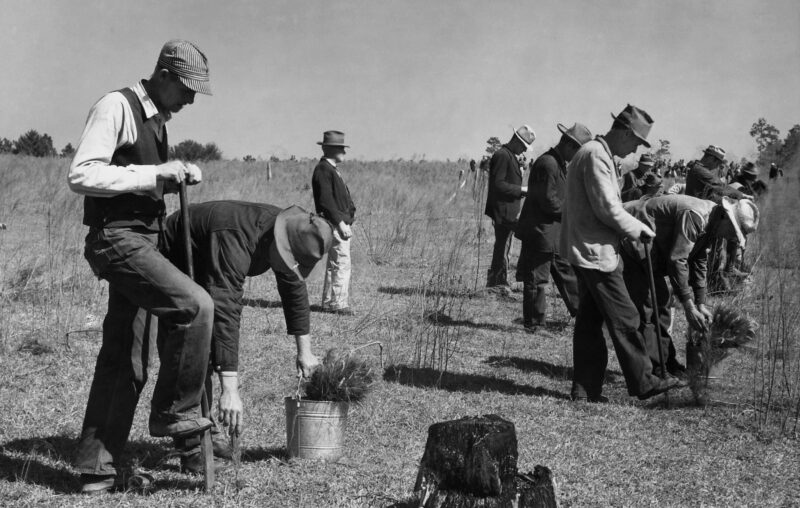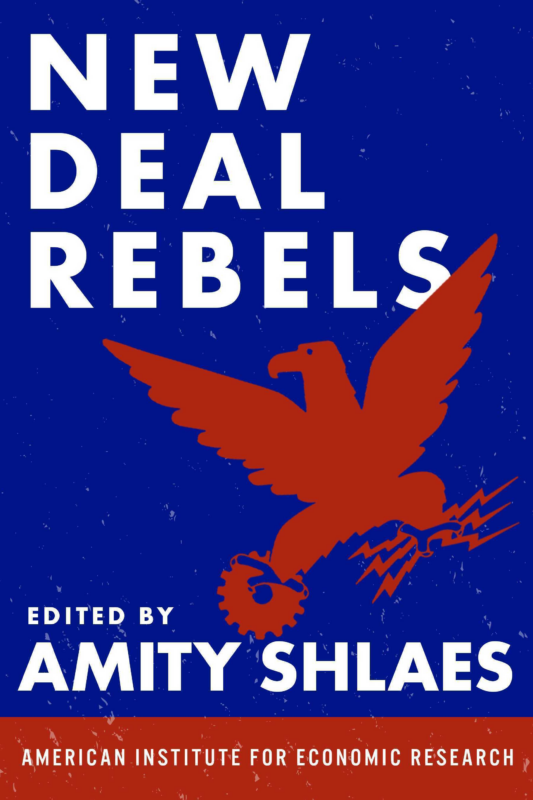Announcing New Deal Rebels, edited by Amity Shlaes

The American Institute of Economic Research is pleased to announce the release of its newest book, New Deal Rebels.
This anthology, edited and with an introduction by bestselling author Amity Shlaes, brings together important and oft neglected commentaries from the critics of the New Deal. As historian David T. Beito writes, “New Deal Rebels is an essential resource for anyone interested in this critical period in American history.”
2023 is the 90th anniversary of Franklin D. Roosevelt’s first term as U.S. President, and of AIER’s founding. Roosevelt’s “New Deal” administration had a transformative impact on American society and the understanding of the government’s role in it. AIER was similarly founded during the same era and in response to that changing nature of government.
The book can be purchased at Amazon.
An Excerpt from New Deal Rebels, afterward by William Ruger:
“…But whence did the New Deal spring? Many observers, historians and New Dealers alike, have described the making of this dramatic program of reform as chaotic, pragmatically-oriented to try to solve discrete problems of the Depression, and fundamentally experimental rather than consistently ideological. For example, historian Richard Hofstadter called it a ‘chaos of experimentation’ while Alvin Hansen famously said in 1940, ‘I really do not know what the basic principle of the New Deal is.’ Others stress the importance of ideas, even if there wasn’t one ideological north star or that the design of the program took place in the context of disorder. …These progressives had faith that enlightened administrative government could harness technical expertise to usher in a better world. This would require greater centralization of political power and energetic use of it to regulate the market and American life in the service of societal progress, especially social and economic equality.
As we now know, the New Deal and its progressive spirit failed to solve the Great Depression that made such a fundamental restructuring possible in the first place (well, that necessary condition and President Franklin D. Roosevelt’s political genius). The economy failed to return to 1929 levels until the late 1930s. Employment took even longer. Real growth-creating investment also suffered due to “regime uncertainty” as businesses worried about what Roosevelt and his New Dealers might do next. Americans even had to suffer a Depression within a Depression in 1937, long after the primary pillars of the New Deal were enacted…
…[The New Deal] fundamentally reshaped our country’s political economy, our institutions, and our political culture. As presidential historian Richard Neustadt noted, ‘FDR in 1933 had changed the country’s consciousness of what its government should be and do’.”











